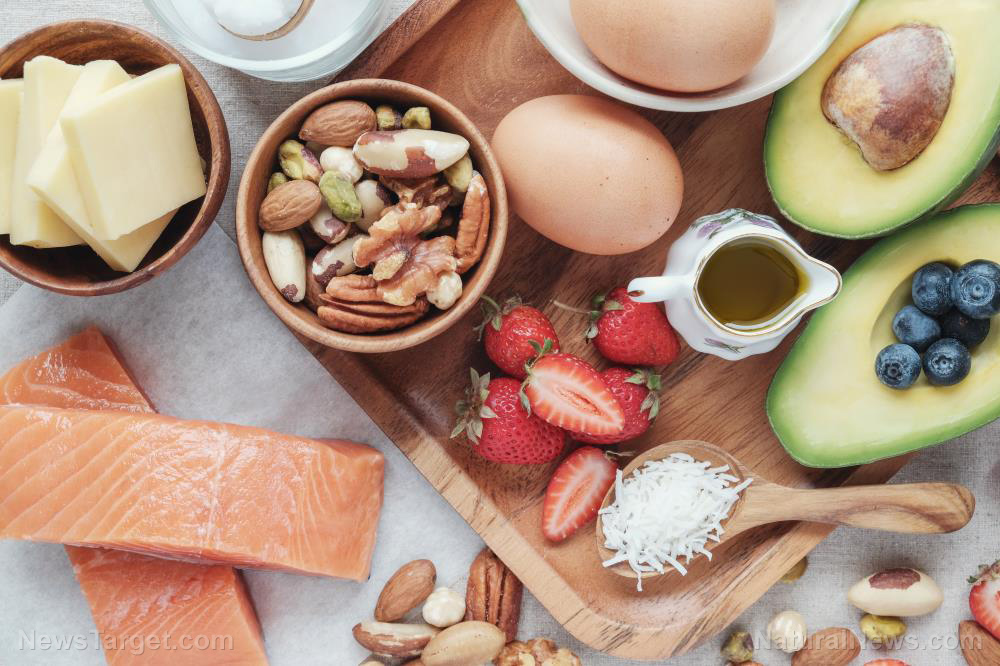Junk food is a moment on the lips, but a lifetime of risk for the arteries
07/21/2019 / By Lance D Johnson

Fatty, processed foods that are high in low density lipoproteins (LDL cholesterol) are known for causing arterial plaques and the onset of atherosclerosis. New research from the University of Illinois shows that the damage to arteries is almost instant at the cellular level. Upon consumption, processed junk foods such as cheeseburgers, fries, cakes, biscuits, sausage, pizza, and oily chips immediately begin to thicken arteries at the cellular level. Using state-of-the-art microscopes, the research team exposed artery cells to two forms of LDL and watched the arteries become more rigid.
Junk food is a moment of bliss on the lips, but at the cellular level, effects unseen become lifelong challenges for the cells and arteries. As LDL cholesterol levels increase, the arteries get stiffer and cell membranes harden, not attracting oxygen into the cells and leading to heightened risk of heart attack and stroke.
Cholesterol is not the enemy, but junk foods that raise LDLs are
Cholesterol itself is not the enemy. Cholesterol is necessary for constructing cellular membranes and producing certain hormones. Low density lipoproteins carry cholesterol through the bloodstream, from the liver to the cells. High density lipoproteins return the cholesterol to the liver. As explained by Vicki Batts’ new book Prevent & Reverse Heart Disease, medications such as statin drugs try to suppress cholesterol levels entirely, but they miss the more important point of differentiating between good and bad fats and managing healthy cholesterol levels through dietary choices.
First, the University of Illinois researchers divided mice into two groups One group was given a well-balance diet and the other group consumed a typical western fast food diet that is high in bad fats and LDL cholesterol. The fast food diet quickly caused stiffened arteries, which was measured by the thickness of endothelial cells that surround the blood vessels. The concentration of LDLs and oxidized LDLs was recorded and applied proportionately to cultured human endothelial cells. Using atomic force microscopy, the researchers measured the tension in the cell membranes and the stiffness in the structure of the cells.
Arterial cells stiffen and thicken when exposed to LDLs and oxidized LDLs
The individual cells that were inundated with LDLs and oxidized LDLs had thicker cell membranes and increased tension throughout. When the two groups of LDLs were combined, the stiffness was made even worse. The endothelial cells that were not inundated with LDLs remained relaxed and flexible.
“To our surprise, a very small amount of oxidized LDL dramatically changes the structure of the cell membrane for the worse,” said researcher Dr Manuela Ayee. “We think that the changes at the cell membrane level may allow the processes involved in atherosclerosis to begin.”
Common LDLs come from greasy, fatty foods such as cheeseburgers, sausage patties, French fries, cakes, and pepperoni. Oxidized LDLs are produced because of free radical damage within the cells. Eating antioxidants from plant-based foods is an important part of protecting yourself against this form of low density lipoprotein. When these LDL levels rise, plaques begin to form in the bloodstream and the arteries begin to stiffen. This study underscores the significance of ditching processed foods and eating a plant-based diet rich in antioxidants and healthy fats.
For more important studies on preventing heart disease, visit Heart.News.
Sources include:
Tagged Under: arteries, cell membranes, cholesterol, death by food, disease causes, endothelial cells, fatty foods, heart disease, heart health, LDLs, prevention, statins, stiff arteries, stroke
RECENT NEWS & ARTICLES
ReverseHeartDisease.News is a fact-based public education website published by Reverse Heart Disease News Features, LLC.
All content copyright © 2018 by Reverse Heart Disease News Features, LLC.
Contact Us with Tips or Corrections
All trademarks, registered trademarks and servicemarks mentioned on this site are the property of their respective owners.


















